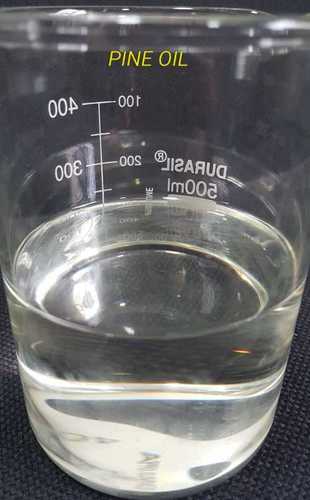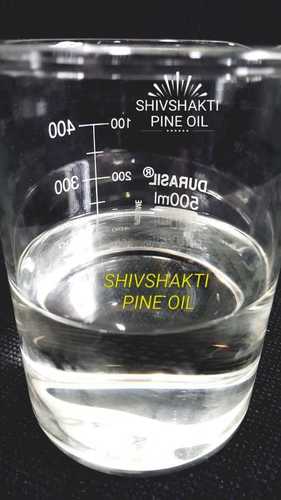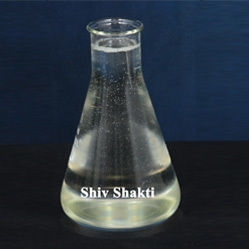Pine Oil 22%
145 INR/Liter
Product Details:
- CAS No 586-62-9,138-86-3,98-55-5
- Appearance Clear Colourless to Pale yellow liquid
- Odour PINY WITH FLORAL FRAGRANCE
- Storage Dry Place
- Volume 50000 Liter (L)
- Raw Material Wood
- Purity 22 %+
- Click to View more
X
Pine Oil 22% Price And Quantity
- 145 INR/Liter
- 200 Liter
Pine Oil 22% Product Specifications
- Herbal Extract
- Fragrance Compound
- 2 Years
- Clear Colourless to Pale yellow liquid
- 586-62-9,138-86-3,98-55-5
- PINY WITH FLORAL FRAGRANCE
- 22 %+
- Wood
- 50000 Liter (L)
- TANK AND DRUMS
- Compound Essential Oil
- Adults
- Dry Place
Pine Oil 22% Trade Information
- ICD Darshrath
- Cash Against Delivery (CAD) Cheque Cash in Advance (CID) Cash Advance (CA)
- 50000 Liter Per Month
- 7 Days
- Yes
- Within a certain price range free samples are available
- 200 litre HDPE or G.I. Drum
- Australia North America South America Middle East Africa Central America Asia
- Dadra and Nagar Haveli Chandigarh Himachal Pradesh Meghalaya Pondicherry Uttarakhand Assam South India Central India North India East India Andaman and Nicobar Islands Andhra Pradesh Arunachal Pradesh Bihar Delhi Daman and Diu Gujarat Goa Haryana Jammu and Kashmir Jharkhand Karnataka Lakshadweep Madhya Pradesh Maharashtra Mizoram Manipur Nagaland Punjab Rajasthan Sikkim Tamil Nadu Telangana Tripura West Bengal Kerala Odisha West India Chhattisgarh Uttar Pradesh All India
- ISO 9001,18001 and 45001
Product Description
Pine oil is an essential oil derived from the needles, twigs, and cones of pine trees. It is commonly extracted through steam distillation or other methods of solvent extraction. Pine oil has a distinct pine-like aroma and is used for various purposes due to its unique properties.
Here are some common uses and applications of pine oil:
1. Aromatherapy: Pine oil is often used in aromatherapy to create a fresh and invigorating atmosphere. Its aroma is believed to have a stimulating and uplifting effect on the mind and body.
2. Cleaning and disinfecting: Pine oil is a common ingredient in household cleaning products due to its antimicrobial properties. It can be added to floor cleaners, disinfectants, and air fresheners to help eliminate bacteria, fungi, and unpleasant odors.
3. Insect repellent: The strong scent of pine oil makes it an effective natural insect repellent. It can be used to deter insects like mosquitoes, flies, and fleas. Pine oil is often found in insect repellent sprays, candles, and diffusers.
4. Industrial applications: Pine oil has applications in various industries, including the manufacturing of paints, varnishes, solvents, and lubricants. It is also used as a fragrance component in soaps, cosmetics, and perfumes.
5. Respiratory health: Inhalation of pine oil vapors is believed to provide respiratory benefits. It is sometimes used in chest rubs, inhalers, and steam inhalation for relieving symptoms of congestion, coughs, and respiratory infections.
Pine Oil 22 % Properties:
- Chemical name: Mixture of terpene alcohols and Terpenes
- CAS no.: 585-62-9,138-86-3,98-55-5
- EINCS No.: 209-578-0,205-341-0,202-680-6
- HSN No. 38059090
- Mol. Formula: C10H18O & C10H16
- Mol.wt: 154.29
- Appearance: Clear Colourless to light Yellow Liquid
- Odour: Piny with Floral Fragrance
- Sp. Gravity: between 0860 to 0.880
- Distillation Range: between 172 to 220 centigrade
- Total Terpen Alcohols: 22 % + (By Dehydrations)
- Water Solubility: Insoluble
- Solubility in solvents: Benzene, Chloroform, most common solvents
Frequently Asked Questions:
Q: What is pine oil?
A: Pine oil is an essential oil derived from the needles, twigs, and cones of pine trees. It is obtained through a steam distillation process, resulting in a concentrated aromatic liquid.
Q: What are the uses of pine oil?
A: Pine oil has various uses, including:
1. Aromatherapy: It is used in diffusers or added to bathwater to promote relaxation and alleviate stress.
2. Cleaning and disinfecting: It is a common ingredient in household cleaners due to its antiseptic properties.
3. Fragrance: It is used as a fragrance component in soaps, candles, and air fresheners.
4. Insect repellent: It can be used to repel certain insects, such as mosquitoes and fleas.
Q: Are there different types of pine oil?
A: Yes, there are different types of pine oil depending on the species of pine tree from which it is derived. Some common types include Scotch pine oil, Siberian pine oil, and longleaf pine oil. Each type may have slightly different characteristics and applications.
Q: What are the benefits of using pine oil?
A: Pine oil offers several benefits, such as:
1. Antimicrobial properties: It can help kill or inhibit the growth of certain microorganisms, making it useful for cleaning and disinfecting.
2. Respiratory support: Inhalation of pine oil vapors may help clear the respiratory passages and provide relief from congestion.
3. Mood enhancement: The scent of pine oil is often associated with feelings of relaxation and improved mood.
4. Deodorizing properties: Pine oil can help neutralize odors and freshen the air in indoor spaces.
Q: Can pine oil be used topically?
A: Yes, it can be used topically, but it should be diluted with a carrier oil, such as jojoba oil or coconut oil, before applying it to the skin. Direct application of undiluted pine oil can cause skin irritation in some individuals.
Q: Are there any precautions or potential side effects?
A: While pine oil is generally safe for most people, it is important to consider the following precautions:
1. Patch test: Perform a patch test on a small area of skin to check for any allergic reactions or skin sensitivity before using pine oil topically.
2. Avoid ingestion: It should not be ingested, as it can be toxic if swallowed.
3. Pregnancy and breastfeeding: Pregnant or breastfeeding women should consult their healthcare provider before using pine oil.
4. Asthma or respiratory conditions: People with respiratory conditions should use pine oil with caution, as strong fragrances may trigger symptoms.
Tell us about your requirement

Price:
Quantity
Select Unit
- 50
- 100
- 200
- 250
- 500
- 1000+
Additional detail
Mobile number
Email
Other Products in 'Pine Oil' category
We exports in Russia, Europe, Gulf countries and African countries.
 |
SHIV SHAKTI INDIA
All Rights Reserved.(Terms of Use) Developed and Managed by Infocom Network Private Limited. |


 English
English Spanish
Spanish French
French German
German Italian
Italian Chinese (Simplified)
Chinese (Simplified) Japanese
Japanese Korean
Korean Arabic
Arabic Portuguese
Portuguese







